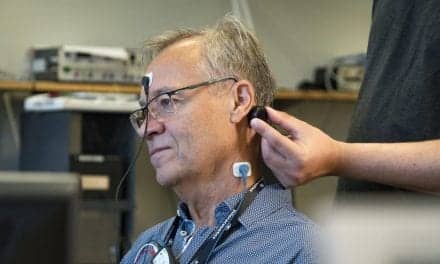Summary: The Vestibular Disorder Association (VeDA) is hosting Balance Awareness Week to raise awareness of vestibular disorders while offering resources to help patients seek treatment and support.
Takeaways:
- Raising Awareness for Invisible Conditions: VeDA’s Balance Awareness Week aims to educate the public about vestibular disorders, which affect more than 35% of adults, often causing dizziness and loss of balance.
- Support and Resources for Patients: The campaign provides valuable resources for patients and their loved ones to better understand their symptoms and access treatments that can improve quality of life.
- Empowering Personal Stories: VeDA Ambassadors share their experiences to reduce stigma and encourage others to seek help for vestibular dysfunction.
The Vestibular Disorder Association (VeDA), an international organization for information about inner ear and brain disorders that affect the vestibular system, is hosting its annual Balance Awareness Week from Sept. 15 – 21, 2024 to increase awareness of dizziness and balance-related vestibular conditions.
Vestibular Disorder Awareness
The campaign aims to enhance public awareness of vestibular disorders and direct patients and their loved ones to resources that can help them discover the cause of their invisible symptoms and so they can get on the road to recovery.
“It is vital to spread awareness about how vestibular dysfunction can dramatically impact one’s life, and provide hope to people struggling with these symptoms,” said Cynthia Ryan, executive director of VeDA. “Even though these may be chronic conditions, there are treatments and coping strategies that can help you regain function and improve your quality of life.”
Understanding Vestibular Disorders
Many people take their balance for granted, until they lose it. The vestibular system, which comprises the inner ear and parts of the brain, plays a crucial role in processing sensory information essential in controlling balance and eye movements. Vestibular disorders affect more than 35% of the adult population, and approximately one-third of reported dizziness and vertigo symptoms result from a vestibular problem.
“Losing balance can feel like losing control of your body,” says Darcy Bonjour, a vestibular patient and VeDA Board Member. “It can be scary and overwhelming. When I started my vestibular journey in 2005, I can still remember how I felt the first time I walked in public. I was so unsteady I had to hold onto my husband to stay upright.”
Further reading: Vestibular Disorders Association Launches Industry Advisory Council
“Until I lost my balance, I took my vestibular system for granted,” says Jennifer Crespo. “Then, when I was 36 weeks pregnant, my life literally turned upside down. I went from having complete balance to losing it in a matter of seconds. This led to developing a chronic disorder that has persisted for years.”
Darcy and Jennifer are among the many VeDA Ambassadors who have directed their vestibular disorder experiences toward positive initiative. They strive to lessen the stigma related to chronic vestibular dysfunction and inspire people to seek the care and support they need, the association says.
Image: The Vestibular Disorder Association




